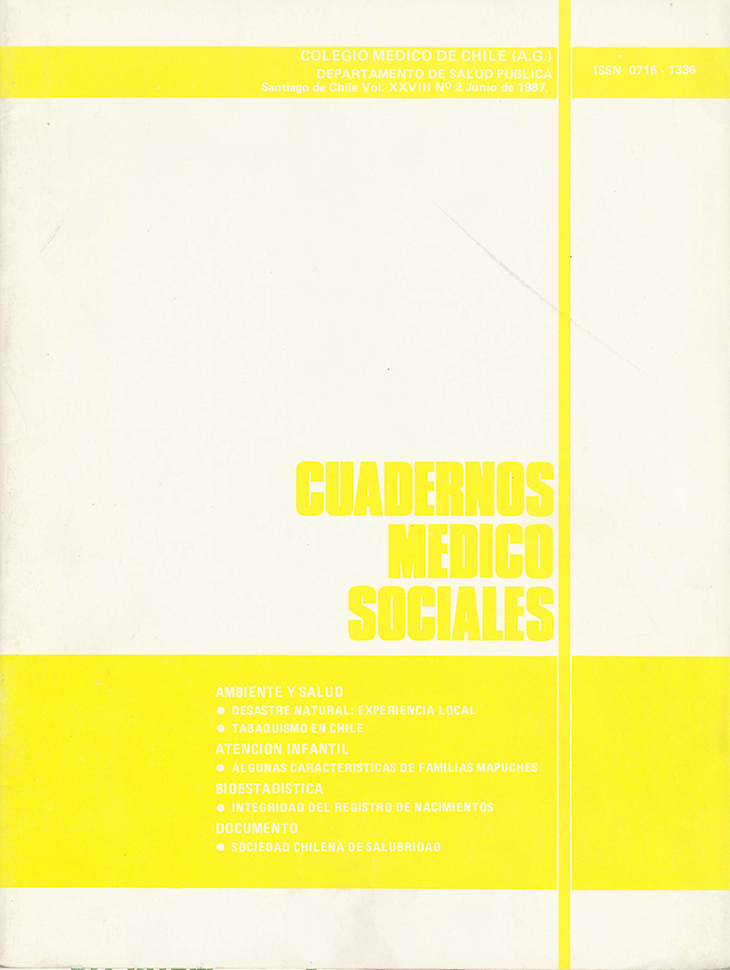Algunas Características de las familias mapuches del Consultorio La Pincoya. Estudio de Casos y Controles, Santiago 1984
Keywords:
Mapuche Indians, Urban Adaptacion, Primary CareAbstract
The children of mapuche indians in an urban primary health care centre in the North Metropolitan area of Santiago, Chile, were studied in relation to various biological and medical care variables. The aim of the study was to make a contribution to the understanding of this racial group’s adaptation to the urban environment of the capital city. A case-control study method was used, using as controls a group of non-mapuche families in the same centre. The results showed that in the following medical care variables there were no significant differences between the two groups: early registration of neonates; the average number of well-baby controls for vaccination by the nurse; deliveries in hospital; the number of consultations for sickness. The mapuche group showed favourable differences in the following biological variables: normal deliveries, longer periods of breast-feeding, higher birth weights, less malnutrition in the first year of life. However, the lengths of the babies were slightly shorter and there were more obese and overweight babies in the mapuche group. The results suggest that from the point of view of health, this study group is well adapted to the urban life style. But we believe that further research in other primary health care centres is needed to get more information before any conclusions may be drawn about the whole mapuche population in the metropolitan area.
Downloads
Downloads
Published
How to Cite
Issue
Section
License

This work is licensed under a Creative Commons Attribution-NonCommercial-ShareAlike 4.0 International License.


